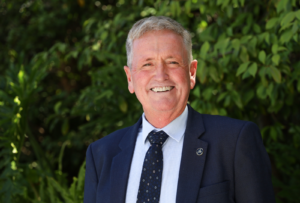The Opposition has raised concerns over the high number of adolescents experiencing emotional distress and called on the Labor Government to immediately increase funding to help struggling secondary students.
Shadow Education and Training Minister Peter Rundle said the concerning results of the DETECT report – the largest study of school student wellbeing ever undertaken in Western Australia – showed the Labor Government are not looking after some of the State’s youngest citizens.
“The survey found around 40 percent of secondary students were experiencing moderate to high levels of emotional distress, which is three times higher than the last time a similar study was conducted,” Mr Rundle said.
“Dealing with COVID-19 has been traumatic and emotional for everyone but the experts are saying these high levels of severe stress were already on the rise prior to the pandemic.
“There is clearly a gap when it comes to supporting students and not just those who have had education interrupted as lockdowns force them into remote learning and stay-at-home orders keep them away from their support network.
“The task of managing this increase in mental health problems is being left to teachers, who are already going above and beyond to supply the best education possible for students – this is unacceptable.”
Mr Rundle also said the Labor Government should implement suggestions made by the report to allocate the limited resources schools have with more precision and go one better by increasing funding into mental health support services.
“We know wait lists for school psychologists have blown out to roughly two years and schools are crying out for access to social workers.
“All students must have these services available to them, to help them cope with the education and learning challenges they are facing.”
Shadow Mental Health Minister Libby Mettam agreed the DETECT report provided concerning statistics which should be used to better implement support programs in WA’s school.
“It underlines the importance of investing in Child and Adolescent Mental Health Services, which only make up 6.5 percent of the more than $1.3 billion mental health budget.
“We need to see some urgent intervention and investment in this area as we face ever-increasing issues around youth mental health, with the COVID-19 pandemic still prevalent around the world.
“These statistics are not just numbers on a page, these are kids who are at risk and could go on to lead happy and healthy lives if they receive the right support early. They deserve much better, especially in a State such as ours.
“We have had multiple reports, plans and reviews into the broken mental health system. It is clear our children can’t wait and now is the time to act.”


